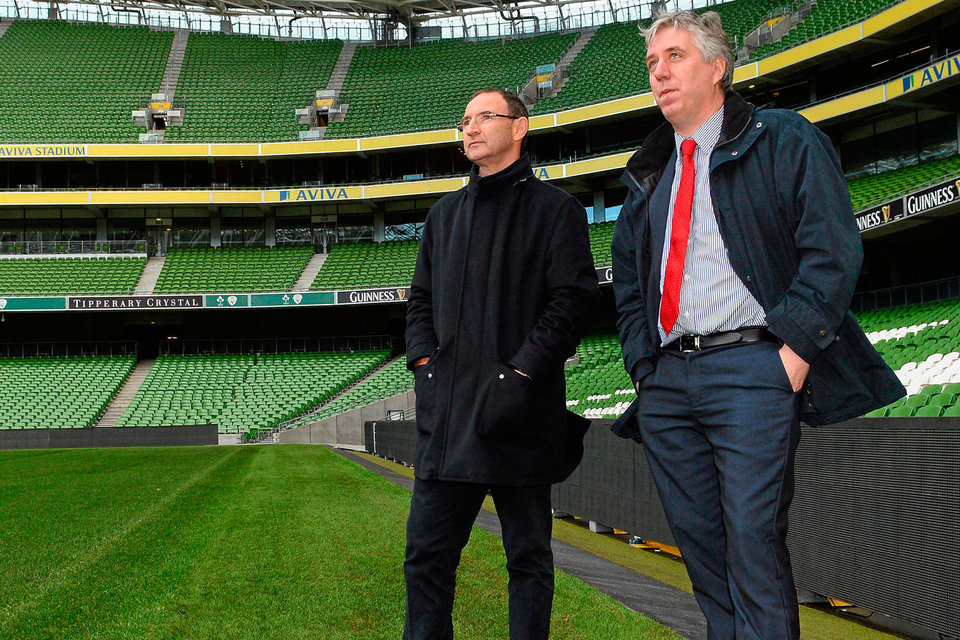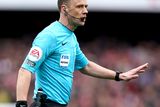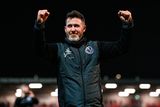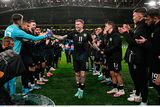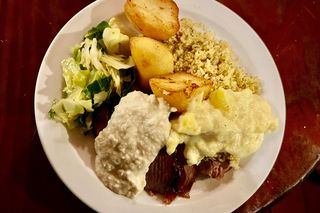Daniel McDonnell: 'Eight Games, Four Goals, No Hope - Ireland's grim year leaves little room for hope'
Ireland have lost the ability to hurt opponents during a grim year
Time to deliver: Martin O’Neill and FAI chief executive John Delaney have plenty to think about after a dismal run of results and mounting dissatisfaction among supporters. Photo: Sportsfile
A year which was supposed to be about restoring pride has ended up battering confidence. After Denmark, a steady downward slide has gathered pace.
Martin O'Neill's side arrive in Aarhus this weekend on a mission to salvage some positivity from Irish football's worst 12-month period since the last days of Steve Staunton.
That's a low bar to meet. Miss Piggy's appearance at the training ground, Stephen Ireland's disappearing grandmothers and Bobby Robson being sent out to bat on 'Liveline' will be hard to surpass.
Remember, Staunton was working with some top Premier League players in their prime during the dark days of Cyprus and San Marino.
This is a different kind of misery now, closer to a terminal illness than a slapstick movie in terms of its personality.
O'Neill acknowledged it would be a tough road back from the 5-1 thrashing to the Danes in the Aviva, yet expressed the wish that his previous achievements would count for credit in the bank. He must know that it's eroding.
The boos after full-time on Thursday were informative. And the 66-year-old did acknowledge that fans who shelled out for tickets had reason to feel short-changed.
Tickets are always a big story in Irish football, and the FAI will have to plot a pricing strategy from 2020 onwards for longer-term packages.
Lest we forget that the disastrous decisions made in this regard a decade ago left the game here saddled with crippling debt. How does one put a price on the value offered by 2018?
Ireland's overall record home and away is eight games, four goals, and one win. That success did at least come in Dublin, but the caveat is that the most encouraging aspect of the 2-1 victory was a brilliant Declan Rice display.
The grim autumn was kicked off by the West Ham teenager's indecision and Ireland's three subsequent outings in Ballsbridge have resulted in two scoreless draws and a 1-0 defeat.
"It's certainly been a disappointing year going forward. No question about it. And we have to regroup," said O'Neill, speaking in a corridor off the main press conference room at the Aviva Stadium late on Thursday night.
In that same area following the Welsh game, he was in bullish form and consistently repeated the phrase 'I will win' before promising that he would bring the team to Euro 2020.
His tone post-Northern Ireland was noticeably more subdued, although he stressed that nothing should be read into that.
"I'm speaking quietly but it's nothing to do with me not coming out and fighting," he said. "I've no problem with that. It's my responsibility. It was disappointing tonight but, in terms of being down, I don't think so.
"The bigger picture is the Euro qualifiers. There is no question about that, regardless of what happens on Monday night, and that has always been the case. I think we will be ready for it. We were ready for it a couple of years ago.
"I can't remember what our results were (before) the very first time that we were trying to get qualification in the Euros. It was five years ago now when we were starting out. We played a couple of matches, I'm not exactly sure what the results were."
There are obvious differences, of course. The importance of the UEFA Nations League can be debated, but Ireland's poor run will have seeding implications.
O'Neill is right to point out that his results in friendlies leading into his maiden campaign were uninspiring, yet there was understanding because he was in a honeymoon period and getting to know his squad.
At this stage of his tenure, there should be signs of greater understanding between his players even if this might be a transitional phase. Northern Ireland have managed to retain their personality while integrating some newer faces.
Both O'Neill and Seamus Coleman knew there would be questions coming their way after such a turgid showing, and they have settled on answers which suggest that players are simply freezing when they cross the white line.
"It's not to do with tactics, it is to do with taking the game by the scruff of the neck and being the character to do that," said the 66-year-old.
"I think that's it; taking a bit more responsibility for a situation and being able to deal with it.
"Seamus may have mentioned earlier about translating what we do in training into the big game. That's it. The training has gone exceptionally well this week but it's able to translate that decent play into a match. That is easier said than done."
Coleman said the same in an interview where he kept going back to the point that the squad must expect flak for how they are performing - and he absolved management of responsibility.
"If someone has the ball he needs two or three options and if he doesn't then it's a difficult job for him, he has to maybe try to beat someone. Only us can fix that."
O'Neill has plenty to ponder on all fronts. He admitted that James McClean is going through a dip in form, but the Derryman is unavailable for Aarhus due to suspension.
Enda Stevens is a like-for-like replacement if he opts to stick with the wing-back system. Coleman may not be a natural fit for that position, much as he operated there in his younger days. There's an argument that he is now more effective with the game ahead of him.
"It's alright," he insisted, "I am not going to complain, I have to adapt to whatever situation comes when I play for Ireland."
Callum O'Dowda was trialled behind Callum Robinson in what was closer to a 3-6-1 than 3-5-2 for spells and was ineffective.
It's well known that Ireland lack a prolific goalscorer, but O'Neill has tinkered around with combinations to try and compensate for that and failed to hit on a solution.
Aiden O'Brien held the ball up well in Poland and was given a start last month but didn't even make the bench on Thursday.
The manager said he was trying to go with an elaborate approach.
"What we were trying to do was try not to be playing so many long balls, to be attempting to play through teams," said O'Neill, explaining the call. "What we wanted to do was to get a little bit more midfield play, get on the ball and create a bit more in and around the penalty area.
"Young O'Dowda, I think he's got that ability to do that but he hasn't played in the last couple of weeks for Bristol City and sometimes it is a little bit difficult for a young kid to come in and be able to produce that. I've got some faith in the lad."
That will be tested now, although another hamstring setback for Seán Maguire has deprived him of the opportunity to try a more conventional striker. Michael Obafemi will travel, but the scope for experimentation in this fixture may well turn out to be narrow.
Denmark will have Christian Eriksen in their ranks so Ireland know where solidity is required.
There's a negative brand of optimism which concludes that O'Neill's side will be more effective when they really train in on stopping the opposition.
That's because they have lost the ability to hurt opponents. It's a failing that is doing damage to their reputation. An Irish team participating in European Championships in Dublin offers tantalising potential.
The 2020 vision has never felt further away.
